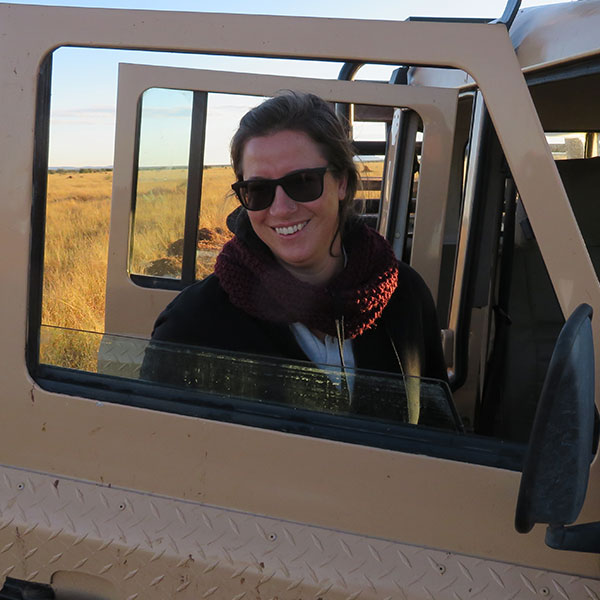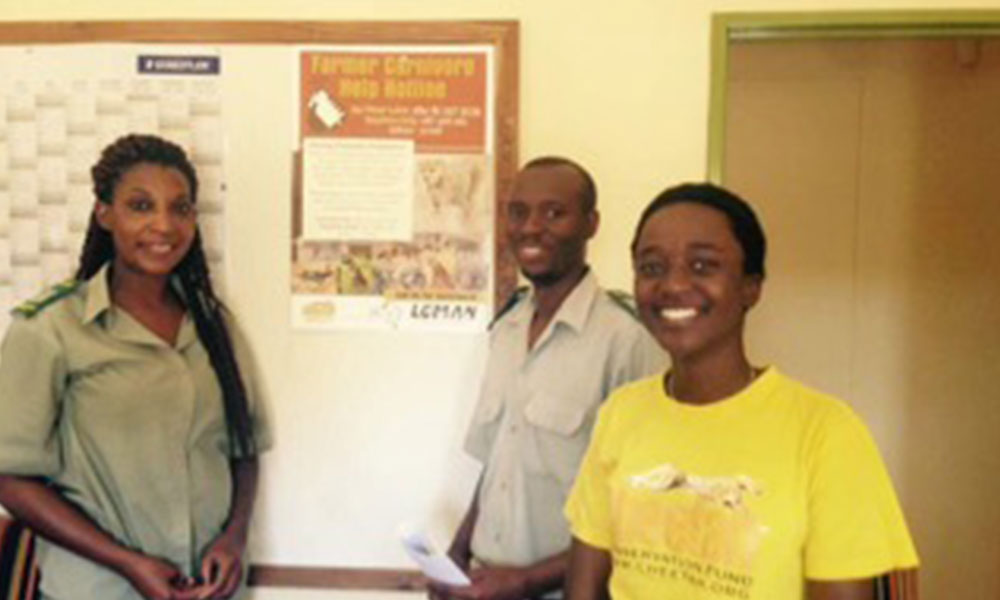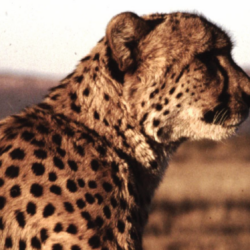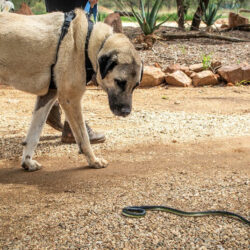Posters Help CCF Spread Awareness to the Farming Community
-

- by Nadja LeRoux October 23, 2017

CCF just launched a campaign to promote the Farmer Carnivore Help Hotline with a printed poster for national distribution within Namibia. The purpose of the hotline is to provide farmers with assistance when they are having problems with predators and their livestock.
Namibia has been in a drought for the past few years (actually most years). This means the country has consistently poor grazing capacity and a decrease in wild prey animals. As a result of less wild prey, predators will choose to hunt livestock instead. Since 90% of Namibia’s cheetahs live on livestock farmlands and they are out hunting during the day, they are often blamed for livestock losses. During drought, the financial strain on farmers to keep their livestock healthy and fed also increases, so there is very little predator tolerance by farmers. CCF’s vision is “to see a world in which cheetahs live and flourish in co-existence with people and the environment” so we are very active in the farming community. For the survival of cheetah and other wildlife, people and wildlife have to be able to live together. The Namibian government recognizes the importance of wildlife and how healthy ecosystems can benefit people too. CCF plays a key role in working to help farmers reduce livestock loss to predators; we are regularly contacted by individuals within the farming community who need our help.

When farmers call CCF, the situation is gauged by CCF’s staff and a series of questions are asked that include:
- What livestock are being lost?
- Where are they being killed, in the veld or in the kraal?
- What time of day are they being killed?
- What do the bite marks look like and where are they on the carcass, as well as which parts of the carcass have been eaten?
From a few basic questions, CCF staff can get an idea of what may be the cause of the mortality. Depending on the urgency of the situation, CCF staff assists the farmers through practical advice from our Integrated Livestock Management program. In more dire situations CCF staff visits the farm to help assess the situation. Camera traps may be necessary to collect data on what predators are around and what the prey density of the land is. We also look into the livestock management systems currently in place, inspect kraals and offer advice to help improve their results in keeping predators away from the most vulnerable livestock which are most often the young animals. CCF’s Wildlife Research Veterinary team will also assess the health of the livestock and offer practical advice to farmers. With small stock, like goats and sheep, we often recommend the use of Livestock Guarding Dogs that will deter predators from coming around these flocks.
CCF collaborates in partnership with many organisations nationally who offer similar assistance, and so where relevant, we help farmers to connect with the right people and follow the correct procedures with the Ministry of Environment and Tourism (MET). “We really appreciate having CCF close by to us” says Patience, MET’s Warden of the Otjozondjupa region, when she received posters for their offices. Posters have also been distributed through The Namibian Association of Community Based Natural Resource Management (CBNRM) Support Organisations (NACSO), of which CCF is a member, and to all 82 Communal Conservancy Offices in Namibia. Posters have also been distributed to strategic businesses like gun shops and farming equipment stores, local state offices such as the State Veterinary Clinics and the offices of the Ministry of Agriculture.
Related Reading
-
December 4, 2024
Double Your Donation for the Cheetah -
June 15, 2024
Snake Aversion Training




